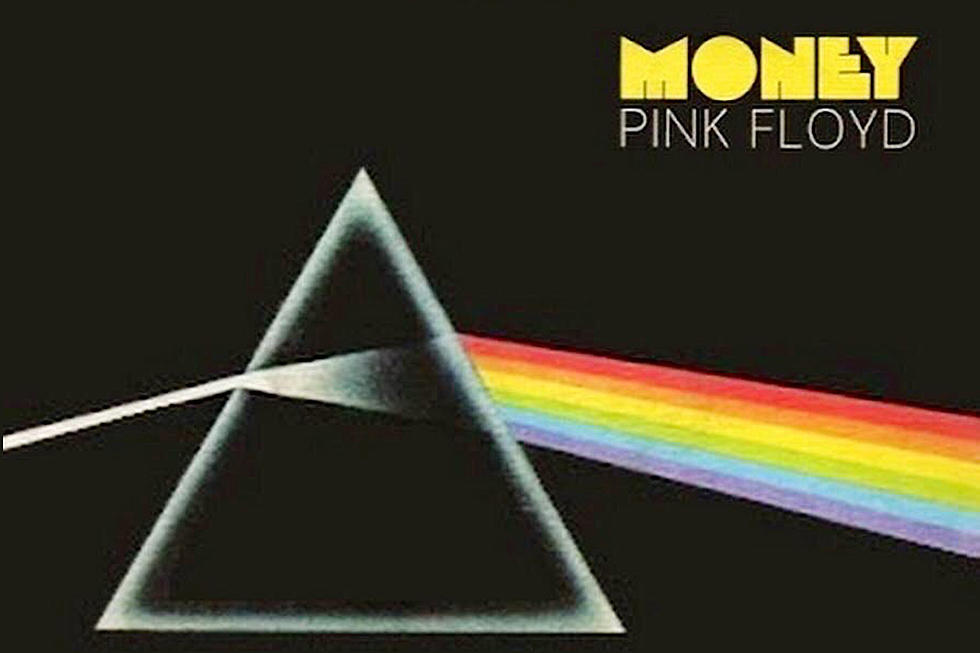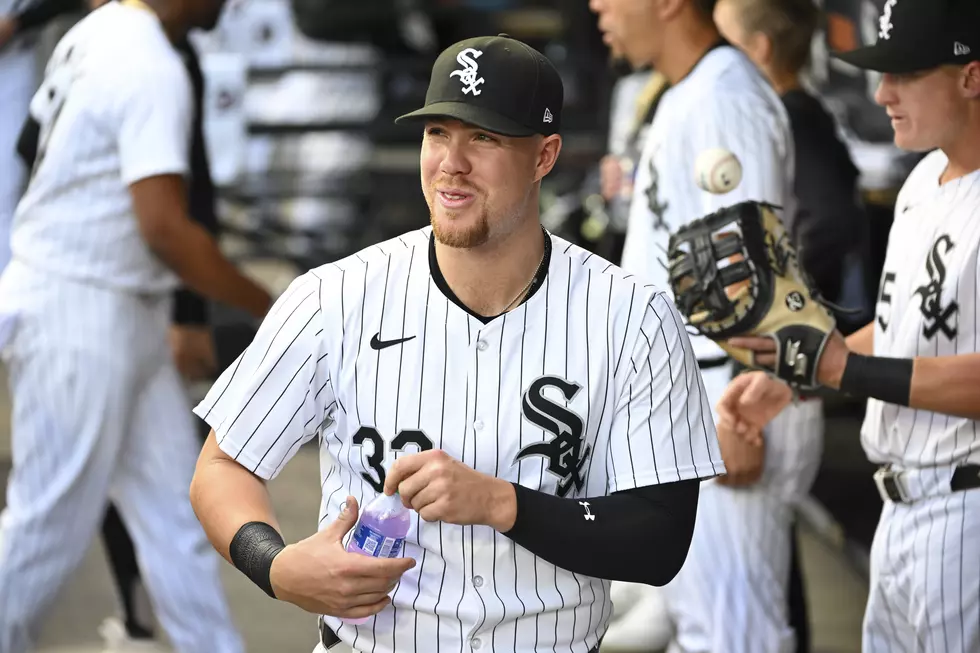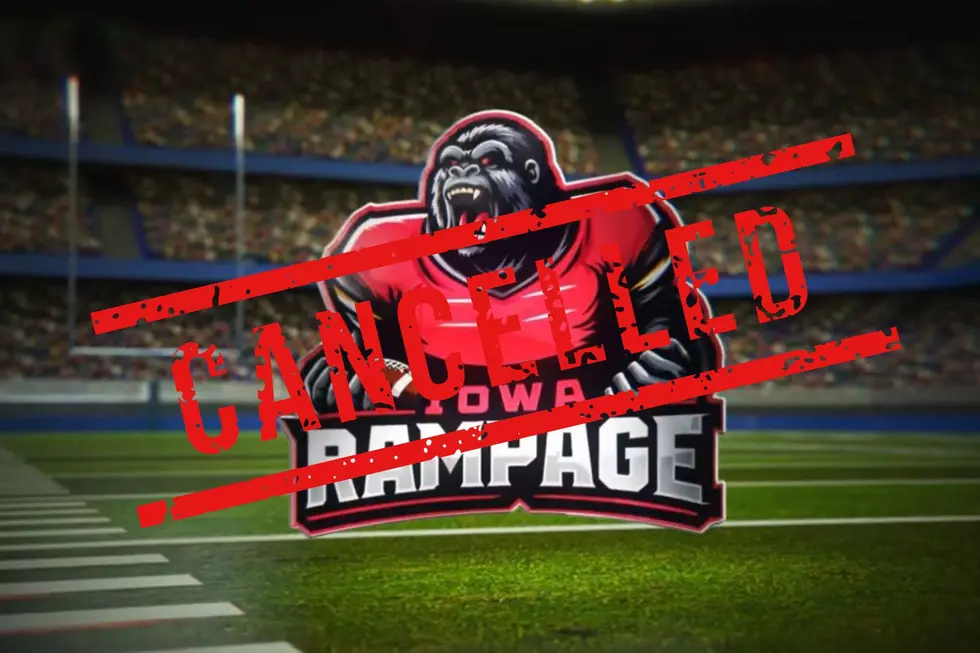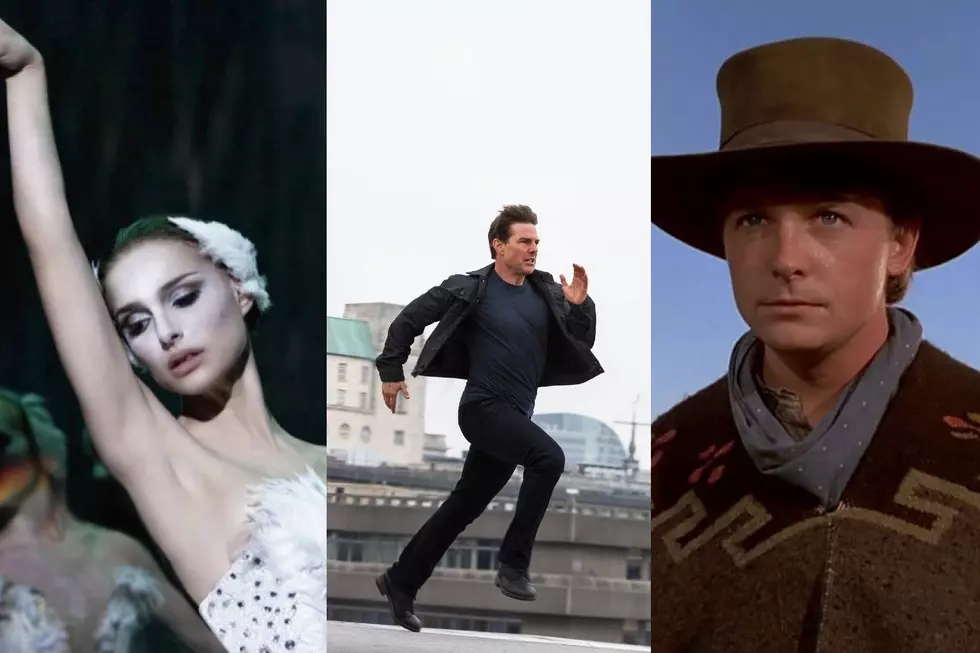
50 Years Ago: Pink Floyd Makes ‘Money’ With Razor Blades and Rulers
It's hardly a news flash to say that a great deal of work was done in the studio when Pink Floyd was recording its classic The Dark Side of the Moon during 1972-73.
Suffice to say the effort paid off, however -- and especially on "Money."
Released as single on May 7, 1973, nearly 10 weeks after Dark Side came out -- and with nearly a minute and a half shaved from the album track to make it more radio friendly -- "Money" was the British quartet's first song to hit the Billboard 200, peaking at No. 13. It would not be surpassed until "Another Brick in the Wall, Part II" from The Wall hit No. 1 six years later, and those are still the only two Pink Floyd songs to hit the Top 20 on this side of the pond.
"At that point we did not care or think a lot about 'hits,'" drummer Nick Mason told this writer some years ago. "We were happy if it happened, but we were not sitting down and going, 'Let's make something they'll play on the radio' -- especially then."
And while it's arguably the most immediately impactful of Dark Side's 10 tracks, "Money" is hardly a prototypical hit single, for a great many reasons.
Watch Pink Floyd's 'Money' Video
There's the rhythm -- or, actually, the rhythms -- for starters. Roger Waters wrote "Money" in his home garden and presented the rest of the band with what he termed a "prissy" demo with a tricky 7/4 time signature. And as the band arranged it the song shifted between that and a more standard 4/4 rhythm.
"It's Roger's riff," guitarist David Gilmour told Guitar World in 1993. "Roger came in with the verses and lyrics for 'Money' more or less completed. And we just made up middle sections, guitar solos and all that stuff. We also invented some new riffs -- we created a 4/4 progression for the guitar solo and made the poor saxophone player (Dick Parry) play in 7/4. It was my idea to break down and become dry and empty for the second chorus of the solo." Gilmour's guitar tone, meanwhile was the result of double-tracking to bolster its impact although a more "dry" approach, sans effects, was incorporated as a counterpoint for part of his solo section.
All that seems positively straightforward compared to track's myriad sonics, however. "We really pushed things on that one," says Mason, who was Pink Floyd's de facto sound effects manager. But for "Money" it was Waters who introduced the idea of rhythmic clinking coins, crashing cash bags and cash register keys that were meticulously created by the band and engineer Alan Parsons -- pieced together with razor blades and splicing tape and synced to the band's playing.
"We had to assemble a loop that worked, timing-wise, for all those different sounds," Parsons explained to Goldmine. "The only way to keep it in time was to take a piece of tape with the sound on it and measure it with a ruler. You would take the exact length of tape and then splice the next exact length of tape to it. We would make a circular loop that was supported with microphone stands around the machine, and we would roll the tape, and that was what the band played to." Parsons also observed to this writer that, "Now, in the digital age, that's something that would take a few minutes to do. Back then it was hours and hours, and always with the fear that you'd make a mistake and have to start all over again."
What "Money" was about was less complicated -- or was it? On its surface Waters' anti-capitalist sentiments seem clear in his sarcastic snipes that money "is a gas" and a "hit," and paraphrasing the New Testament's 1 Timothy g:30 to declare that "money, so they say, is the root of all evil today." But 20 years after Dark Side's release Waters confessed a level of hypocrisy to The Observer, confessing that, "Money interested me enormously. I remember thinking, 'Well, this is it and I have to decide whether I’m really a socialist or not.' I'm still keen on a general welfare society, but I became a capitalist. You have to accept it. I remember coveting a Bentley like crazy...I very much wanted all that material stuff."
Waters and his bandmates could certainly afford that after the enormous success of Dark Side, which has continued to make the band, well, money right up to this year's 50th anniversary box set.
"Money," meanwhile, has been a staple of Pink Floyd and Waters solo shows and was one of the songs played at the band's Live 8 reunion show during 2005 in London. The lyrics are referenced in a scene from the film adaptation of The Wall, and Gilmour and Parry even re-recorded the song in 1981 for A Collection of Great Dance Songs when Capitol Records would not license it to Columbia Records for use on the compilation.
Pink Floyd Albums Ranked
More From 94.1 KRNA










